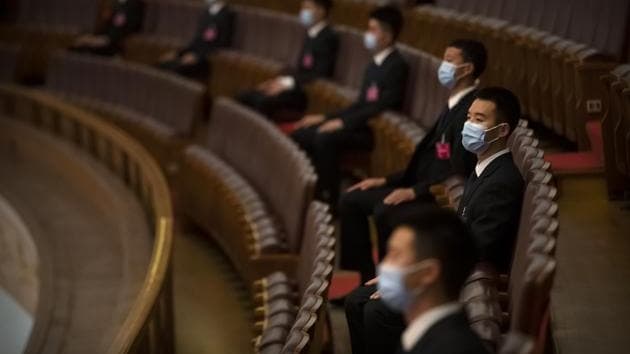
China on Thursday passed a new security legislation for Hong Kong that makes any show of dissidence against the mainland a crime and for the first time paves the way for Beijing to install its own security agencies in the protest-wracked city.
Critics of the new law and several western countries, most prominently the US, have said it essentially ends the unique system of governance under the "one country, two systems" mechanism which governed Hong Kong since the British handed it over to China in 1997.
The writing in of the new security law into Hong Kong's special charter, or Basic Law, will see the mainland's control over the SAR tighten substantially.
The city has seen violent protests since last June on that very issue: Beijing's apparent tightening of control over the city and its impact on freedoms including that of free speech and expression.
"The move came after prolonged social unrest and escalating street violence had plunged Hong Kong into the gravest situation since its return to the motherland in 1997," official news agency, Xinhua reported, referring to the protests.
The National People's Congress (NPC), China's rubber-stamp Parliament, passed the bill with 2878 votes in favour on Thursday, the last day of its delayed and shortened annual meeting; one voted against it and six abstained.
Leading Chinese politicians have stoutly defended the bill.
Addressing his annual press conference at the end of the NPC, Premier Li Keqiang on Thursday said that the approval of "…Hong Kong national security legislation aims for HK's prosperity".
Li said the law would be good for Hong Kong's long-term stability and prosperity and the "one country, two systems" formula would remain a national policy
"It will uphold and improve the 'one country, two systems' policy," NPC chairperson Li Zhanshu told delegates during the closing ceremony.
"It is in line with the constitution and Hong Kong's Basic Law and is in the interest of all Chinese people including Hong Kong people," he added.
Full details of the law are yet to be made public but it criminalises secession, subversion, terrorism and activities by foreign forces that interfere in Hong Kong.
The bill says that "when needed, relevant national security organs of the Central People's Government will set up agencies in Hong Kong to fulfil relevant duties to safeguard national security in accordance with the law".
Hong Kong's Beijing-backed leader Carrie Lam said her government would work with Beijing to complete the legislative work as soon as possible, according to agency reports from the city.
"The law will not affect the rights and freedoms enjoyed by Hong Kong residents," she said in a statement welcoming the Chinese parliament's vote.
The new legislation is set to worsen relations between China and the US.
"Already, international business is facing the pressure of increased tension between the U.S. and China, but the enactment of China's security law for Hong Kong could take the tension to a whole new level," Tara Joseph, president of the American Chamber of Commerce in Hong Kong wrote in a commentary for the South China Morning Post newspaper.
"This is show time for Hong Kong," she wrote.
"This is the death knell for Hong Kong, make no mistake of it, this is the end of 'one country, two systems', the Hong Kong that we loved, a free Hong Kong," pro-democracy lawmaker from Hong Kong Dennis Kwok was quoted by agencies as telling reporters on Thursday.
Sign on to read the HT ePaper epaper.hindustantimes.com